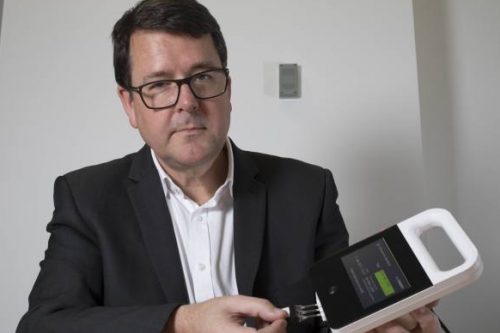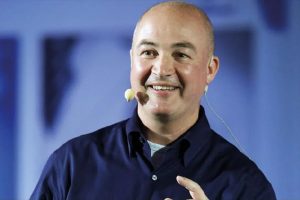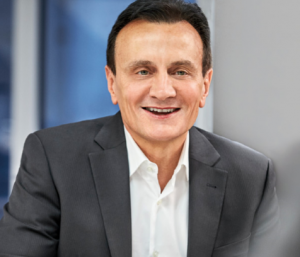City round-up: Genedrive; Unilever; AstraZeneca

Health watchdogs have given the green light for Manchester molecular testing business, Genedrive’s latest piece of kit.
The UK’s National Institute for Health and Care Excellence (NICE) has preliminarily recommended that the Genedrive MT-RNR1 ID Kit can be used by the NHS following the evidence review as part of their Early Value Assessment (EVA) Programme.
The specialist NICE EVA committee collected evidence regarding technical, clinical, economic and social impact of the kit and concluded that it can quickly and accurately identify babies with the primary genetic variant who may be at risk of hearing loss if given aminoglycoside antibiotics, there is currently no test available in the NHS that provides results quickly enough to inform decisions on antibiotic prescribing in emergency care, the long-term savings to the NHS associated with hearing loss and fitting cochlear implants could be substantial, and aminoglycoside-induced hearing loss has a major negative impact on the quality of life of children and their families.
NICE’s final guidance on the kit will follow a public consultation period which opens today (February 9) and closes on February 21. The final recommendations will be the basis for NICE’s early value guidance on using the Genedrive MT-RNR1 test in NHS England alongside additional data generation.
Genedrive CEO, David Budd, said: “We are delighted with the enthusiastic and positive engagement of the NICE specialist review team and encouraged by this draft stage recommendation from the EVA programme.
“We encourage relevant stakeholders to participate during the public consultation period to support our pioneering work, and look forward to receiving the final NICE report and recommendations for the world’s first rapid point-of-care genetic test used to influence neonatal management in an acute care setting.
“The timely publication of the NICE guidance is an important outcome that we expect will facilitate further uptake and adoption of the test by NHS England.”
::

Alan Jope
Consumer goods and foods group Unilever announced a year of strong growth today.
Turnover rose by 14.5% to €60.1bn, while operating profits of €10.8bn were a 23.6% improvement on the previous year.
The group operates a key home and personal care manufacturing site and research and development facility at Port Sunlight, Wirral.
Chief executive, Alan Jope, said: “Unilever delivered a year of strong topline growth in challenging macroeconomic conditions. Underlying sales growth was 9.0%, driven by disciplined pricing action in response to high input cost inflation.
“Growth was broad-based across each of our five business groups, led by strong performances from our billion+ Euro brands. Despite sharp rises in material costs, we have prioritised stepping up our brand and marketing investment. Underlying operating margin was delivered in line with our guidance, with underlying operating profit up for the year.
“We have made further progress in the transformation of Unilever and continued to deliver against our strategic priorities. Our new operating model is already unlocking a culture of bolder and more rapid decision making with improved accountability. We continue to improve our growth profile, with the sale of the global Tea business and the acquisition of Nutrafol.
“We are increasingly realising the benefits from the reshaped portfolio, accelerated savings delivery and improved execution. There is more to do, but the changes we have made mean that we start 2023 with momentum, setting us up well for delivering another year of higher growth, which remains our first priority.”
Mr Jope will retire on July 1, and be replaced as CEO by Hein Schumacher.
Russ Mould, investment director at Manchester investment platform, AJ Bell, said: “Has Unilever put its prices up too much? That’s the question after it once again reported a rise in revenues and a decline in sales volumes. While consumers have got used to everything costing a bit more in the shops, there is still a point where certain items become unaffordable, or where the price-point for a cheaper alternative is too good to ignore.
“Even though Unilever boasts some of the world’s most loved brands, sometimes consumers have no other choice but to plump for generic versions due to their financial circumstances. And if you listen to what supermarkets have been saying recently, own-label products are flying off the shelves.
“Outgoing chief executive Alan Jope can boast ‘strong topline growth’ as his legacy, but under the bonnet it’s plain to see falling margins, declining sales volumes, and a confused approach to strategy.
“Jope’s replacement, Hein Schumacher, joins in July, by which time we may well see widespread evidence of inflation easing, but whether Unilever brings its prices back down is another thing.
“The new boss will need to think quickly about this point, as well as defining what Unilever should look like over the next decade. As ever with a business that has so many moving parts, we aren’t likely to see any radical changes for at least a year, but Schumacher’s in-tray is already going to be full before he’s even stepped in the door.”
::

Pascal Soriot
Pharmaceuticals giant, AstraZeneca, today reported its total revenues for the year increased 25% to $44.351bn and said it expects this to increase by a low-to-mid single-digit percentage for the current year.
It turned a $265m pre-tax loss last year into a pre-tax profit of $2.501bn.
Chief executive, Pascal Soriot, said: “2022 was a year of continued strong company performance and execution of our long term growth strategy.
“We made excellent pipeline progress with a record 34 approvals in major markets and we are initiating new late stage trials for high potential medicines such as camizestrant, datopotamab deruxtecan and volrustomig.
“In 2023, we expect to see another year of double-digit revenue growth at CER, excluding our COVID-19 medicines. We will continue to invest behind our pipeline and recent launches while continuing to improve profitability. We plan to initiate more than 30 Phase III trials this year, of which 10 have the potential to deliver peak year sales over $1bn.
“Our R&D success and revenue increase in 2022 demonstrate that we are on track to deliver industry-leading revenue growth through 2025 and beyond, and have set AstraZeneca on a path to deliver at least fifteen new medicines before the end of the decade.”
The group employs around 4,700 people in the North West on sites at Macclesfield and Alderley Park in Cheshire and Speke on Merseyside.







